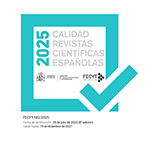Una perspectiva desde el campo: enfrentando el dilema de seguir la Carta para la Interpretación y Presentación de Sitios Patrimonio Cultural en el caso de Tell Balata, Palestina
Résumé
Los y las arqueólogas y gestoras de patrimonio tienen una cierta responsabilidad hacia diversos públicos y agentes en la contemporaneidad. Se espera, más que nunca, un esfuerzo en pro de la inclusión social, al considerar el patrimonio como un conductor hacia el desarrollo, al respeto de los derechos humanos, etc. Varias convenciones internacionales y cartas, como la Carta de ICOMOS 2008 para la interpretación y presentación de Sitios Patrimonio Cultural, intentan estimular y asesorarnos en nuestros esfuerzos para alcanzar estos objetivos. Además, tenemos numerosos manuales, guías y revistas a nuestra disposición que nos proporcionan las últimas experiencias y las mejores prácticas. Pero, ¿y si la situación local en la que trabaja un gestor de patrimonio o un arqueólogo hace muy difícil o casi imposible aplicar los principios básicos de una o más de estas cartas, convenciones, códigos de conducta, estándars, etc.? Básicamente, estas doctrinas tienden a ser optimistas y positivistas, en la forma en la que emana el dominio de la ingeniería del patrimonio través de las instrucciones de arriba hacia abajo (“top-down”), de profesionales de la arqueología y la gestión de patrimonio con recomendaciones prácticas. Pero muchas veces hay un gran abismo entre la teoría y la práctica, entre los estándares aceptados de forma general y las normas que se espera que sigamos y la situación en el campo. Este dilema será tratado en relación a los retos del proyecto del Parque Arqueológico Tell Balata en Palestina, donde es casi imposible cumplir con tales estándares profesionales ni seguir la carta de ICOMOS del 2008 debido a la situación política, social y económica.
Téléchargements
##submission.format##
Licence
La revista Complutum, para fomentar el intercambio global del conocimiento, facilita el acceso sin restricciones a sus contenidos desde el momento de su publicación en la presente edición electrónica, y por eso es una revista de acceso abierto. Los originales publicados en esta revista son propiedad de la Universidad Complutense de Madrid y es obligatorio citar su procedencia en cualquier reproducción total o parcial. Todos los contenidos se distribuyen bajo una licencia de uso y distribución Creative Commons Reconocimiento 4.0 (CC BY 4.0). Esta circunstancia ha de hacerse constar expresamente de esta forma cuando sea necesario. Puede consultar la versión informativa y el texto legal de la licencia.










